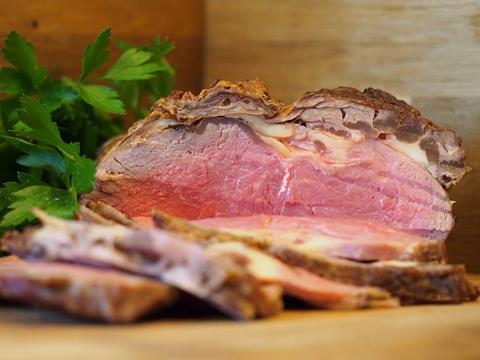The Government has announced the UK’s new MFN (Most Favoured Nation) tariff regime, the UK Global Tariff (UKGT). This will replace the EU’s Common External Tariff on 1st January 2021 at the end of the Transition Period. Tariffs are to be maintained on agricultural products including lamb, beef, and poultry.

The Government says the new tariff is tailored to the needs of the UK economy. It aims to support the economy by making it easier and cheaper for businesses to import goods from overseas. It will be in pounds (£), not euros. It claimed that it will scrap red tape and other unnecessary barriers to trade, reduce cost pressures and increase choice for consumers and back UK industries to compete on the global stage.
Click here to check the UK Global Tariff that will apply to goods you import from 1st January 2021. You can also check the difference between what you pay now and what you’ll pay from 1st January 2021.
Industry reaction
Responding to the Government's announcement, SAMW president Andy McGowan said: “This is a hugely welcome outcome and gratifying that our hard work in discussion with Government prior the new tariff regime being agreed has clearly paid off. The new regime is a relief for Scotland’s farming and processing sector with the tariffs for beef, lamb and pork remaining the same as current EU terms. Pigmeat, in particular, is much better served than in the original draft regime which proposed almost complete withdrawal of protection from this highly important part of the Scottish industry. We appreciate the changes which have been made in agreeing the final package which we see as a positive outcome for the whole livestock industry.”
The four UK farming unions of England, Scotland, Ireland and Wales issued a joint comment : “We are pleased the government has listened and maintained many of the safeguards currently in place for UK farmers under its new UK Global Tariff schedule. This is particularly important in fulfilling the UK government’s commitment not to undermine our high food and farming standards.
“It is worth remembering, however, that these tariffs are likely to be negotiated away as part of any trade deals that will be struck in the coming months, and so those deals must include strong provisions ensuring food imports are produced to the same standards required of our own farmers. Not only will this help the government fulfil its vision of a sustainable and profitable UK farming sector but will also meet public demand that our standards are not undermined in future trade policy.
“Although the overall position appears to support UK farmers, we need to examine and fully consider all the implications of the simplifications involved. For instance, it is still likely that the changes will lead to increased competition for some domestically produced commodities and we will need to understand the precise nature and impact of that. We are also urging the government to provide clarity around its ability to adjust the tariffs announced today, in particular in the event that there is no negotiated agreement with the EU on a future relationship by the end of the year.”
Ian Wright CBE, chief executive of the Food & Drink Federation said: “The FDF welcomes the announcement of the UK’s global tariff. The Government has taken on board FDF's suggestions to maintain specific and compound tariffs on agrifood goods that limit exchange rate impacts on tariffs, and encourage the use of higher quality and value ingredients. This gives food and drink manufactures time to prepare for the application of these tariffs after 1st January 2021.
“This is a sensible step back from the temporary tariffs set out in March 2019. This approach will preserve essential negotiating capital for the UK in trade talks with the EU, US and Japan. That said, it is vital that the UK secures a trade deal with the EU before the end of the year to avoid serious damage to manufacturers and for consumers.
“It will take time for business to understand the implications of these tariffs. The FDF will work closely with both members and government to identify any concerns and ensure the best possible outcomes.”
International Trade Secretary Liz Truss said: "For the first time in 50 years we are able to set our own tariff regime that is tailored to the UK economy. Our new Global Tariff will benefit UK consumers and households by cutting red tape and reducing the cost of thousands of everyday products. With this straightforward approach, we are backing UK industry and helping businesses overcome the unprecedented economic challenges posed by coronavirus."
This story was originally published on a previous version of the Meat Management website and so there may be some missing images and formatting issues.















